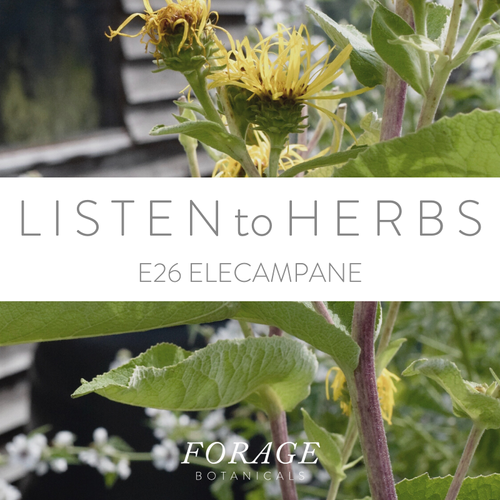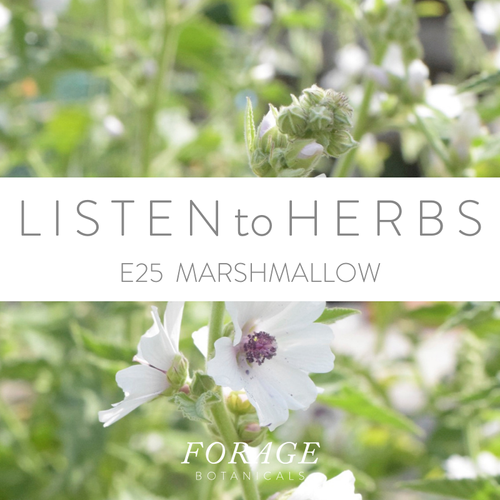Natasha Richardson & Claire Goulding
Burdock (Arctium lappa)
Plant Profile

Burdock root is one of my favourite bitters as it is so easy to access. It grows wild in the UK, it even grows in my south London local park. You can also buy it from Asian food markets because it's used as a food in that culinary tradition.You can listen to our podcast on the topic here, or browse the profile below for its uses. We've scoured the internet for the most up to date research to back up the claims made below and put our references at the bottom so you can go look at them.
Names. Lappa, Fox’s Cote, Bardana, Burrseed, Hurrburr, Thorny Burr, Beggars Buttons, Clot-Bur, Happy Major, Cockle Buttons, Love Leaves, Philanthropium, Personata, Appa major.
Element. Water.
Planet. Venus.
Magical uses. Wards off negativity, Protection, Protective necklace.
Key words.Deep, Dark, Strength, Absorb, Cling, Clear.
Tissue type: Atrophy & Stagnation
Qualities. Oily & Bitter
Actions: Laxative, Appetite stimulant, Central nervous system stimulant, Circulatory and Lympathic stimulant, Anti-fungal, Diuretic, Astringent, Bitter tonic, Antiscorbutic, Relaxant, Demulcent,
Physical Uses. Dry skin, Syphillis, Furunculosis, Eczema, Psoriasis, Acne, Urticaria, Joint disease, Connective tissue disease, Detoxification, Blood cleansing, Removes uric acid, Gout, Painful limbs, Alopecia, Balance blood sugar, Stiff lower back, Sciatica, Carpal tunnel syndrome, Profuse sweating, Oedema, Boils, Abscess, Carbuncles, Arthritis, Rheumatism, Styes, Sebhorrea, Cystitis, Anorexia, Reduce bad cholesterol.
Emotional Uses. Feeling worn out, Emotional baggage, Release toxic emotions.
Parts used. Root (Leaves and Seed also but actions above refer to root)
Known constituents. Lignan, Inulin (starch), Mucilage, Sugars, Pectin, Sulphur and Organic acids, Sesquiterpenes, Tannin, Iron, Sulphur, B vitamins, Phenolic acid, Fatty acids.
Legend & Tradition
The latin name for Burdock, Arctium comes back to the Greek root, arcos. Arcos means Bear and is thought to relate to the sharp claws of the Burdock seeds. The velcro like hooks on these seeds catch on anything which passes it and this action lends itself to many more of its names. Such as the Beggars Buttons. I love the idea of someone using these to mimic buttons. Though I don’t think it would do a very good job! As the leaves are heart shaped I’m making a logical jump to conclude this explains it’s name “Love Leaves”. While it is descriptive of its appearance it doesn’t allude to any romantic uses. However, I found it interesting to see the name Philanthropon listed for Burdock because another herb which sticks to you; Cleavers, is also called this (Grieves, 1992).
Medicinal Uses
SKIN
I love to use Burdock in my dispensary and it usually makes an appearance when I need to treat a skin condition which is dry and dehydrated. This is probably what most herbalists think of Burdock as for. It is the root that is normally used in modern practice (Aghmiuni et al, 2017).
The leaves were once used topically for Rheumatism, Gout, Leprosy, Kidney obstruction, Venereal disease and externally on Burns, Scalds, and Scrofulus swellings. The leaves used to be boiled in milk and used topically as a cataplasm (plaster).
DIGESTION AND ELIMINATION
The root is bitter and oily which means that it will stimulate expulsion of metabolic waste as well as helping the body to absorb essential fatty acids, thereby moisturising the body from the inside out. This makes it useful in cases of Eczema, Scrofula, Acne, and Psoriasis. It is even useful for Eczema which has broken and weeping skin (Azizov et al, 2012).
I would recommend it as a bitter tonic it helps to increase the excretion of bile in the stomach and mucilage in the intestines. This allows the nutrients of foods to be absorbed better. It also improves peristalsis, an integral part of absorption, as the movement of the intestines maximises the surface area of the intestines.
The main action the Burdock is used for is its blood cleansing or alterative action. But what does this really mean? Blood cleansing is a bit of a misleading concept as we can’t actually do this in reality. Some describe it as; “medicines that alter the process of nutrition, restoring in some unknown way the normal functions of an organ or system… re establishing healthy nutritive process” - Blakiston’s Medical dictionary.
By increasing bile, sweat and urine it helps us eliminate metabolic waste from the system. It’s thought that this enables Burdock to flush uric acid from the body and improve joint pains caused by Rheumatism, Arthritis and Gout (Sondhi et al., 2021).
URINARY
Burdock is excellent for helping to clear swollen feet or hands. This is because it has a diuretic action. In fact, the seeds were traditionally used to help move fluids and is stronger in its diuretic action than the root (Edwards et al., 2015).
IMMUNITY
Another type of swelling is when the lymphatic system is inflamed while trying to deal with an infection.
REPRODUCTION
Matthew Wood connects the Burdocks ability to absorb and utilise fats as essential to the movement of hormones in the body. He sees it as a potentially very helpful remedy in the support of hormonal balance for women (Yoshinari, 2022). This would be best suited for women who are menstruating or pre-menopausal as it is normally not recommended to use herbs which has sesquiterpenes during pregnancy. However, having said that, I did find reference to it being used during pregnancy in the past to nourish the mother.
I wouldn’t recommend using Burdock for nourishment during pregnancy without seeing a herbalist.
References
Azizov, U. M., Khadzhieva, U. A., Rakhimov, D. A., Mezhlumyan, L. G., & Salikhov, S. A. (2012). Chemical composition of dry extract of Arctium lappa roots. Chemistry of Natural Compounds, 47(6), 1038-1039.
Aghmiuni, A. I., & Khiavi, A. A. (2017). Medicinal plants to calm and treat psoriasis disease. Aromatic and Medicinal Plants–Back to Nature, 2016, 1-28.
Grieves,
Sondhi, S., Singh, N., & Jindal, S. (2021). Natural Remedies used in the Treatment of Psoriasis: A short Review. Asian Journal of Pharmaceutical Research, 11(1), 43-5.
Yoshinari, O. (2022). Health benefits of inulin-type fructan on gut microbiome, digestive health, immunity, and nutrition. In Nutrition and Functional Foods in Boosting Digestion, Metabolism and Immune Health (pp. 365-376). Academic Press.



